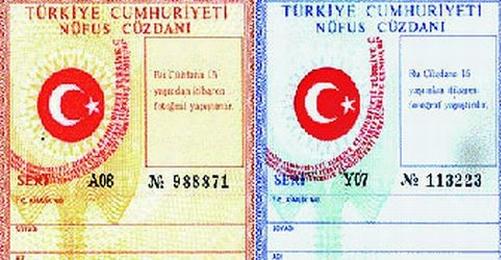Upon the application of Sinan Işık to change the indication of religion on his identity card from "Islam" to "Alevi", the European Court of Human Rights (ECHR) decreed that even the disclosure of religious belief on the ID constitutes a violation of freedom of belief.
It its decision from 2 February, the ECHR decreed with one dissenting vote that the breach of freedom of belief had arisen "not from the refusal to indicate the applicant's faith on his identity card but from the very fact that his identity card contained an indication of religion, regardless of whether it was obligatory or optional". Turkish Judge Işıl Karakaş was part of the chamber of judges. Her Portuguese colleague Ireneu Cabral Barreto voted against the decision.
"The government's argument that it 'does not imply pressure' is not convincing"
The indication of religion was obligatory in Turkey till June 2006. However, the ECHR was not convinced by the government's argument that "the indication of religion on identity cards did not constitute a measure that compelled Turkish citizens to disclose their religious convictions and beliefs".
The field for religious indication on the Turkish ID may be left blank since 2006. Işık applied to a court in Izmir in 2004 requesting to change the indication from "Islam" to "Alevi". Based on advice from the Ministry of Religious Affairs, the court dismissed Işık's request. The court perceived the Alevi faith as a sub-group of Islam and thus considered the term "Islam" as correct.
In contrary to the Constitution and ECHR criteria
Işık had put forward a violation of an article of the Constitution which provides that "nobody shall be compelled to disclose his/her religion or beliefs" and of article 9 of the European Convention on Human rights on "freedom of thought, conscience and religion". The Court of Appeals rejected the case without further reasoning on 21 December 2001. As a last resort, Işık applied to the ECHR. (EÖ/VK)













